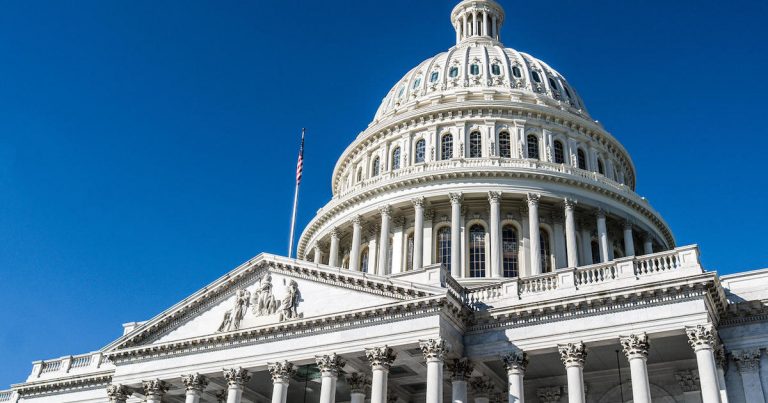Could Trump restrict abortion access if he wins reelection?
The Battle Over Abortion
When Donald Trump announced his position on abortion last month — pledging to leave the issue to the states — groups that oppose the procedure and had pushed him to back a federal ban were disappointed.
“At the end of the day, this is all about the will of the people,” Trump said.
Indeed, his pledge follows what voters have generally reinforced at the ballot box since the Supreme Court overturned Roe v. Wade — that they oppose efforts to restrict access to abortion. His backers within anti-abortion groups have nonetheless urged him to publicly support a nationwide ban, at a minimum, on abortion beyond 15 weeks of pregnancy.
But the former president might not need to risk alienating voters in the general election to appease abortion rights opponents in his base. Should Trump return to the Oval Office, some experts say his administration can significantly restrict abortion without ever imposing a federal ban.
A “presidential transition handbook” titled Project 2025, published by the Heritage Foundation includes directives aimed at multiple government agencies that could be enforced by a conservative president.
The abortion section was written by Roger Severino, who led the Department of Health and Human Services Office for Civil Rights under Trump.
Trump senior campaign advisers Susie Wiles and Chris LaCivita pushed back against the prospect of such restrictions in a second Trump term, saying in a statement that “unless a message is coming directly from President Trump or an authorized member of his campaign team, no aspect of future presidential staffing or policy announcements should be deemed official.”
But without the ability — or political will — to pass new abortion limits through Congress, Trump may face pressure to take other action. And the outside plan outlines how an administration could rely on existing laws, interpreting them to dramatically alter access to abortion — focusing on a centuries-old law and abortion pills.
Ending Medication Abortion
Medication abortions account for more than half of all abortions in the U.S. each year, making it a key avenue of access for women seeking an abortion and a target for opponents.
Project 2025 calls abortion pills “the single greatest threat to unborn children in a post-Roe world” and argues the Food and Drug Administration should reverse its approval of the drug at the center of the regimen.
Mifepristone, the first in a two-drug regimen used to terminate early-stage pregnancies, was approved by the FDA in 2000. That approval and subsequent moves to make the drug more accessible have been the source of intense pushback in recent years. The Supreme Court is considering a case this term concerning the rules around the drug’s use.
Although the high court appears poised to reject a challenge to the drug’s availability on procedural grounds, a new administration could take other action to curtail access to the medication. For instance, a new FDA chief could decide to review the agency’s past actions, including the initial approval and more recent moves that have made mifepristone more widely available, like the ability to get it through the mail. Project 2025 outlines the move as an “interim step,” while advocating for full reversal of the drug’s approval.
Trump said in an interview with Time Magazine that he has “pretty strong views” on the abortion pill that he plans to make public in the near future, along with his views on the implementation of a 19th-century anti-obscenity law that could mark an even more substantial move to restrict abortion.
Using the Comstock Act to Ban the Abortion Pill — and More
An 1873 law related to the shipping of materials deemed as “obscene, lewd, lascivious, indecent, filthy, or vile” has become a primary focus of anti-abortion groups as a method to significantly restrict access to abortion — even without a new law.
Because the Comstock Act remains on the books, those who oppose abortion see it as a method to almost immediately begin restricting access under a conservative administration.
Project 2025 argues that since the Supreme Court overturned Roe, there is no federal prohibition on enforcing the statute, saying the “next conservative Administration should, therefore announce its intent to enforce federal law against providers and distributors of such pills.”
To do so, a Trump administration could appoint an attorney general who believes that the Comstock Act is not in disuse and should be enforced as it’s written, says Rachel Rebouché, the dean of Temple University’s Beasley School of Law. And she expects that an administration’s Justice Department seeking to apply the Comstock Act could ban everything that is used in furtherance of an abortion — not just the mailing of abortion pills.
“I think that a new administration could try to take action to put people in jail for mailing anything, but, you know, pills included, that assist in an abortion because the act is really broad,” Rebouché said, adding that it could amount to a “defacto” abortion ban nationwide if it’s applied in a broad sense.
Accordingly, the Comstock Act could offer a path forward for presidents to severely restrict access to abortion with some political cover or “plausible deniability,” said Mary Ziegler, a historian and law professor at the University of California, Davis, because rather than signing a new abortion ban, they would be able to say they’re “just enforcing the law.”
But enforcing the Comstock Act, and chipping away at abortion access isn’t the movement’s end game, Ziegler says.
“The Comstock Act is more of a short-term strategy,” she said. “Personhood is the long-term goal.”
The Long Fight for Personhood
The topic of personhood — when human life begins — has been a widely debated philosophical question for centuries. But there’s also been a separate legal argument over whether fetuses should be granted the same rights as any person under the law, often referred to as fetal personhood.
Under Roe, the Supreme Court didn’t weigh in on when life begins, instead opting to tie abortion access to the viability standard, that is, when a fetus could survive outside of the womb. And the justices didn’t address this question directly in overturning Roe either, although Justice Samuel Alito, who wrote the majority opinion, mentioned it.
“Our opinion is not based on any view about if and when prenatal life is entitled to any of the rights enjoyed after birth,” Alito wrote, saying the liberals’ dissenting opinion would impose a theory about when personhood rights begin that he argued the Constitution and legal tradition don’t support. But he didn’t appear to rule out an alternative theory for when personhood rights should begin.








